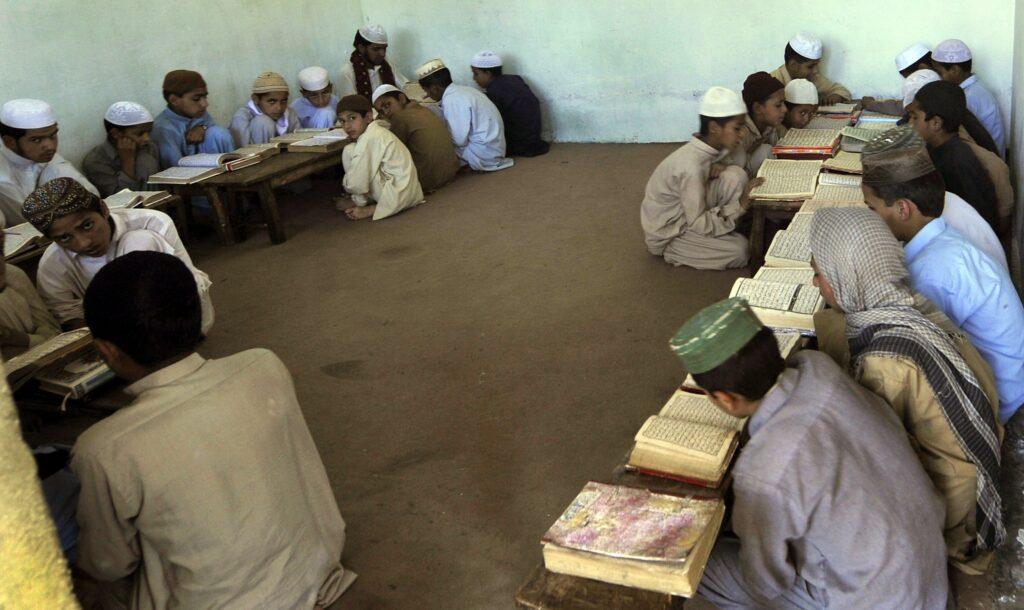ISLAMABAD:
The total number of registered religious madrassas across the country is 17,738, with 2,249,520 students enrolled, the Ministry of Education said while presenting the details of the religious seminaries to the Senate.
Meanwhile, the Tax Laws Amendment Bill, earlier introduced in the National Assembly, was also tabled on Thursday and referred to the Senate Finance Committee for further deliberation.
The Senate session, chaired by Syed Yousaf Raza Gillani, met on Thursday morning during which details about madrassa registrations across the country were presented. In response to a question from a member of the Senate, the Ministry of Education revealed that there are 17,738 registered madrassas with 2,249,520 students enrolled.
The detailed statistics revealed that Punjab has 664,065 students, Sindh 188,182, Balochistan 71,815, Khyber-Pakhtunkhwa 1,283,024, Azad Kashmir 26,787, Islamabad 11,301 and Gilgit-Baltistan 4,346 students.
The written response also clarified that no direct funding is provided to madrasas. However, the Directorate General of Religious Education (DGRE) has provided 1,196 teachers to 598 madrassas.
During the session, the government introduced the Tax Laws Amendment Bill, 2024, which was referred to the Finance Committee for further review. Separately, journalists staged a walkout from the press gallery in protest of the handling of cases under the PECA Act, prompting members of the Senate to assure that the matter would be addressed.
In a call-out notice on the Kurram Parachinar situation, Senator Allama Raja Nasir Abbas, a PTI ally, demanded action from the federal and provincial governments. He alleged that innocent people were killed in Kurram and claimed that despite informing Imran Khan about the deteriorating situation, his concerns were ignored.
He criticized the lack of action and said neither the federal nor provincial governments took effective action.
Allama Raja Nasir Abbas added that he visited the area personally and did not observe any sectarian conflict or unity among the locals. However, he criticized the Khyber-Pakhtunkhwa government and questioned why those responsible for the subsequent killings and attacks were not arrested.
In the absence of the federal interior minister, religious affairs minister Chaudhry Salik Hussain responded by calling it a provincial matter but assured federal cooperation if necessary.
He stressed that maintaining law and order is a provincial responsibility, but reaffirmed that the Center would provide full support if requested.




